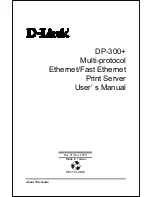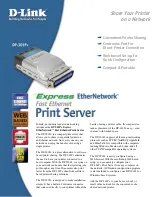
7.
Pull
the
loops
of
the
drive
assembly
toward
each
other;
then,
carefully
slide
the
drive
assembly
into
the
drive
bay
until
it
stops
and
release
the
loops.
Note:
Do
not
release
the
loops
on
the
drive
assembly
until
it
is
completely
seated.
8.
Attach
the
signal
cable
to
the
drive:
a.
Attach
one
end
of
the
signal
cable
to
the
corresponding
connector
on
the
rear
of
the
drive.
b.
Attach
the
other
end
of
the
signal
cable
to
the
corresponding
connector
on
the
system
board.
9.
Connect
the
power
cable
to
the
rear
of
the
drive.
The
connectors
are
keyed
and
can
be
inserted
only
one
way.
If
you
have
other
options
to
install
or
remove,
do
so
now;
otherwise,
go
to
“Completing
the
installation”
on
page
44.
Power
and
signal
cables
for
internal
drives
The
server
uses
cables
to
connect
parallel
IDE,
simple-swap
SATA,
and
SAS
devices
to
the
power
supply
and
to
the
system
board.
(See
“System-board
internal
connectors”
on
page
14
for
the
location
of
system-board
connectors.)
Review
the
following
information
before
connecting
power
and
signal
cables
to
internal
drives:
v
The
drives
that
are
preinstalled
in
the
server
come
with
power
and
signal
cables
attached.
If
you
replace
any
drives,
remember
which
cable
is
attached
to
which
drive.
v
When
you
install
a
drive,
make
sure
that
one
of
the
signal
cable
drive
connectors
is
connected
to
the
drive
and
that
the
connector
at
the
other
end
of
the
signal
cable
is
connected
to
the
system
board
or
a
compatible
adapter
or
controller
that
you
have
installed.
v
If
you
have
only
one
IDE
device
on
a
cable,
it
must
be
set
as
a
master
device.
v
If
two
IDE
devices
are
used
on
a
single
cable,
one
must
be
designated
as
the
master
device
and
the
other
as
the
subordinate
device;
otherwise,
the
server
might
not
recognize
some
of
the
IDE
devices.
The
master
and
subordinate
designation
is
determined
by
switch
or
jumper
settings
on
each
IDE
device.
v
When
you
route
a
cable,
make
sure
that
it
does
not
block
the
airflow
to
the
rear
of
the
drives
or
over
the
microprocessor
or
DIMMs.
The
following
cables
are
provided:
v
Power
cables:
Four-wire
power
cables
connect
the
drives
to
the
power
supply.
At
the
end
of
these
cables
are
plastic
connectors
that
can
be
attached
to
different
drives;
these
connectors
vary
in
size.
Use
either
a
four-wire
power
cable
or
SATA
power
cable
with
SATA
drives,
but
do
not
use
both
at
the
same
time
(use
one
or
the
other).
v
Signal
cables:
Signal
cables
are
typically
flat
cables,
also
called
ribbon
cables,
that
connect
parallel
IDE,
SATA,
SAS,
and
diskette
drives
to
the
system
board.
Two
or
three
types
of
signal
cables
come
with
the
server:
–
IDE:
The
wider
IDE
signal
cable
has
three
connectors.
One
of
these
connectors
is
attached
to
the
drive,
one
is
a
spare,
and
the
third
is
attached
to
the
primary
or
secondary
IDE
connector
on
the
system
board.
The
spare
connector
can
be
used
to
connect
an
additional
IDE
drive
to
the
server.
The
CD-ROM
drive
is
attached
to
an
ATA
100
signal
cable.
ATA
100
signal
cables
are
color-coded.
The
blue
connector
is
attached
to
the
system
board.
36
xSeries
206m
Types
8485
and
8490:
User’s
Guide















































